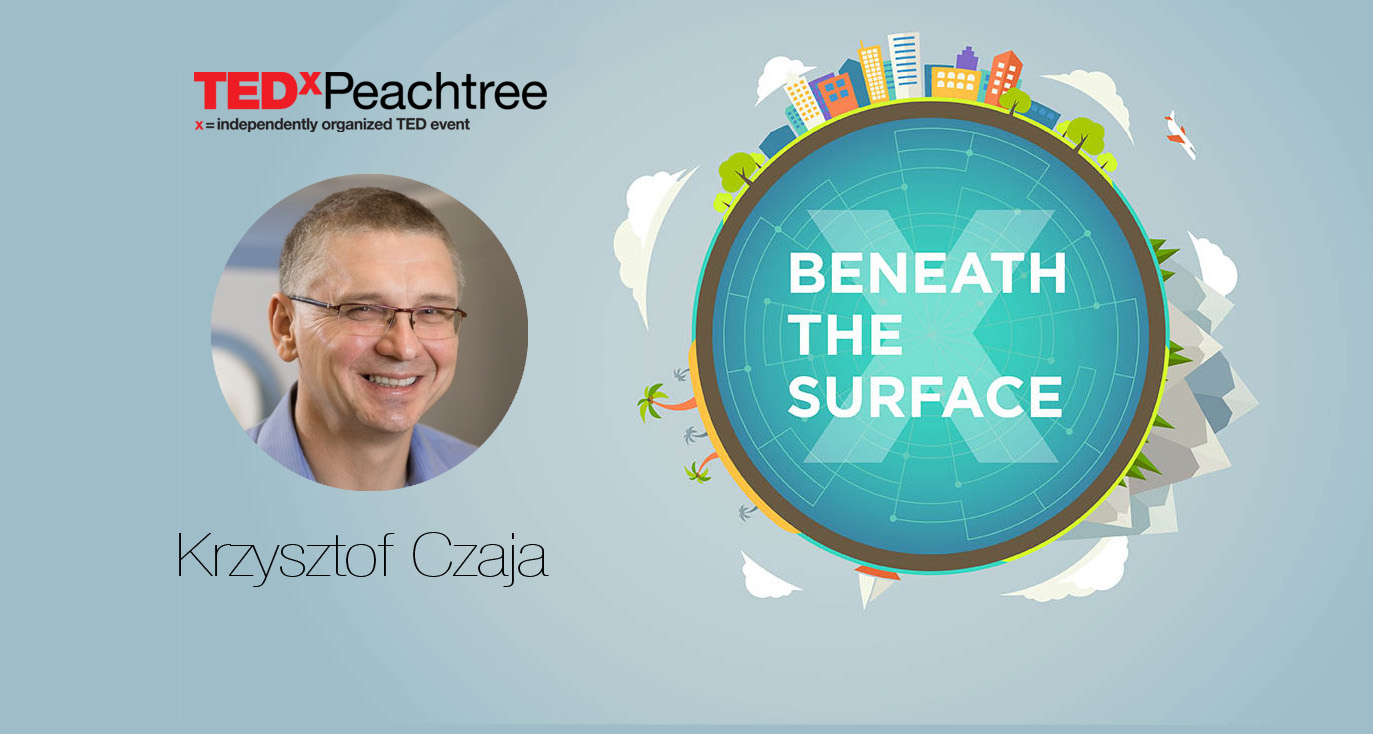
Beyond the Bio: Krzysztof Czaja
The TEDxPeachtree team spoke with some of the upcoming speakers at TEDxPeachtree on Friday, Oct. 6, 2017 at the Rialto Center for the Arts to dig beneath the surface of their biographies. In this edition of Beyond the Bio, we spoke with Krzysztof Czaja, a neuroscientist and associate professor at the University of Georgia. Here’s what we found:
Why are you speaking at TEDxPeachtree 2017?
I want to spread the news that diet can change the human brain. It’s much deeper than we think.
The consequences of obesity are much deeper than our common knowledge, and they are scarier than most people realize. We think if we could just get rid of the fat then we’ll be fine, but it’s deeper.
It’s not just the gut. It’s a cascade of events going through our nervous system that is pretty much changing our brain.
What does “beneath the surface” mean to you?
It describes exactly my work with the nervous system. There’s more than what you can see. I focus on the hidden part that you can’t really see.
What is your favorite junk food?
I very, very rarely eat junk food. But when I do, it’s onion rings.
Other passions?
Woodworking. I have been building things with my father since I was a kid. I like to take something useless and make something useful from it.
I’m currently designing and building a table for my tools. It has a rotating top with one tool on one side and another tool on the other. I get two tools in one space.
I love the ergonomics of different spaces. It’s in my brain. I like to put things in a most ergonomic order.
Favorite designer?
Sam Maloof. He designed really beautiful furniture. He was a true craftsman.
How did you get to the University of Georgia (UGA)?
When I was back in Poland in the 1990s, I met Dr. Robert Kraeling who was visiting from UGA. We started talking about research and just clicked from the beginning. We spoke on the same “frequency.” He helped me with the development of research ideas.
At that time, Poland wasn’t as advanced as the United States. He brought me more advanced thinking.
UGA funded my research grant and I came to Athens, Ga. to finish some parts of the project. After a few years working at Washington State University, UGA offered me a position. I can make more progress here and do what I really love — teaching and neuroscience.
In this era of massive technological innovation, what’s the one invention you can’t wait for?
Time travel. Traveling effortlessly and timelessly from place to place in present time. Being in another part of the world in a fraction of a second.
I really don’t have any desire to go into the future or the past. Going into the future might be disappointing. It might spoil my life. Going back any further than the year I was born might be an obstacle in conversation.
Most of the time my teen daughter and I understand each other, but very often speak a different language. It’s hard to be on the same “frequency” across generations.
Thoughts on technology?
We shouldn’t underestimate the human brain and its capability, and overestimate artificial intelligence (AI). We should be very, very careful about relating humans with AI, because we are still at the very beginning of truly understanding the full capabilities of the human brain.

Leave a Reply